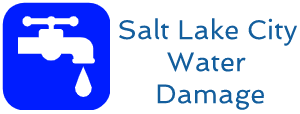Home Remediation
Home Remediation and How It Can Help You Live a Healthier Lifestyle
Home remediations are a great way to create a healthier and safer environment in your home. They can help reduce the risk of exposure to hazardous materials and improve air quality, making your home a much healthier place to live. This comprehensive guide will provide you with all the information you need to know about home remediations, from what they involve and how they can benefit you, to what steps need to be taken for successful implementation. With this knowledge in hand, you’ll be able to make informed decisions about how best to keep your family safe and healthy. See about home remediation.
Introduction: What is Home Remediation and How Can it Improve Your Health?
Home remediation is a process of improving the quality of your home environment to improve your health. It involves using natural home remedies and other methods to reduce toxins, allergens, and pollutants that can affect your health. This includes improving indoor air quality, lead remediation, and more. Home remediation can provide many benefits to your health by reducing stress, improving sleep quality, and reducing the risk of developing chronic illnesses. In this article we will discuss the various types of home remediation available and the potential health benefits it can offer.
The Basics of Home Remediation & Common Techniques Used
Home remediation is a process of identifying and removing environmental hazards in the home. It is important to ensure that your home is free from any hazardous materials that could be harmful to you and your family. Common techniques used for home remediation include mold remediation, mildew removal, asbestos removal, and lead-based paint management. These techniques are essential for protecting your family from potential health risks associated with these hazardous materials. In this article, we will discuss the basics of home remediation and common techniques used to keep your home safe from environmental hazards.
Tips for Implementing an Effective Home Remediation Plan
Home remediations are an important part of any homeowner’s maintenance plan. From preventing mold and mildew to repairing water damage, a proper home remediation plan can help protect your property and keep it in top condition. But how do you implement an effective home remediation plan? In this article, we’ll provide some tips and best practices for getting the most out of your home remediations. We’ll cover topics such as identifying potential problem areas in your home, selecting the right materials for repairs, and developing a timeline for completing the job. With these tips in mind, you can ensure that your home remediations are done properly and efficiently.
The Benefits of Investing in a Home Remediation Project
Investing in a home remediation project can provide numerous health benefits to you and your family. From improved air quality to reduced allergens, investing in a home remediations project can help make your home healthier and more comfortable. Not only that, but it can also add value to your property and increase its marketability. In this article, we’ll explore the various benefits of investing in a home remediations project and why it’s worth considering for any homeowner.
Common Problems Encountered During Home Remediations & How to Over
Home remediations can be challenging and costly, but they are necessary to ensure the safety and longevity of your home. Unfortunately, many homeowners encounter various problems during the process, from unexpected costs to structural issues. In this article, we’ll discuss some of the most common problems encountered during home remediations and how to overcome them. We’ll also discuss some tips for avoiding these issues in the future. By understanding what can go wrong and how to prevent it, you can save time and money while ensuring your home remains safe and secure for years to come.
